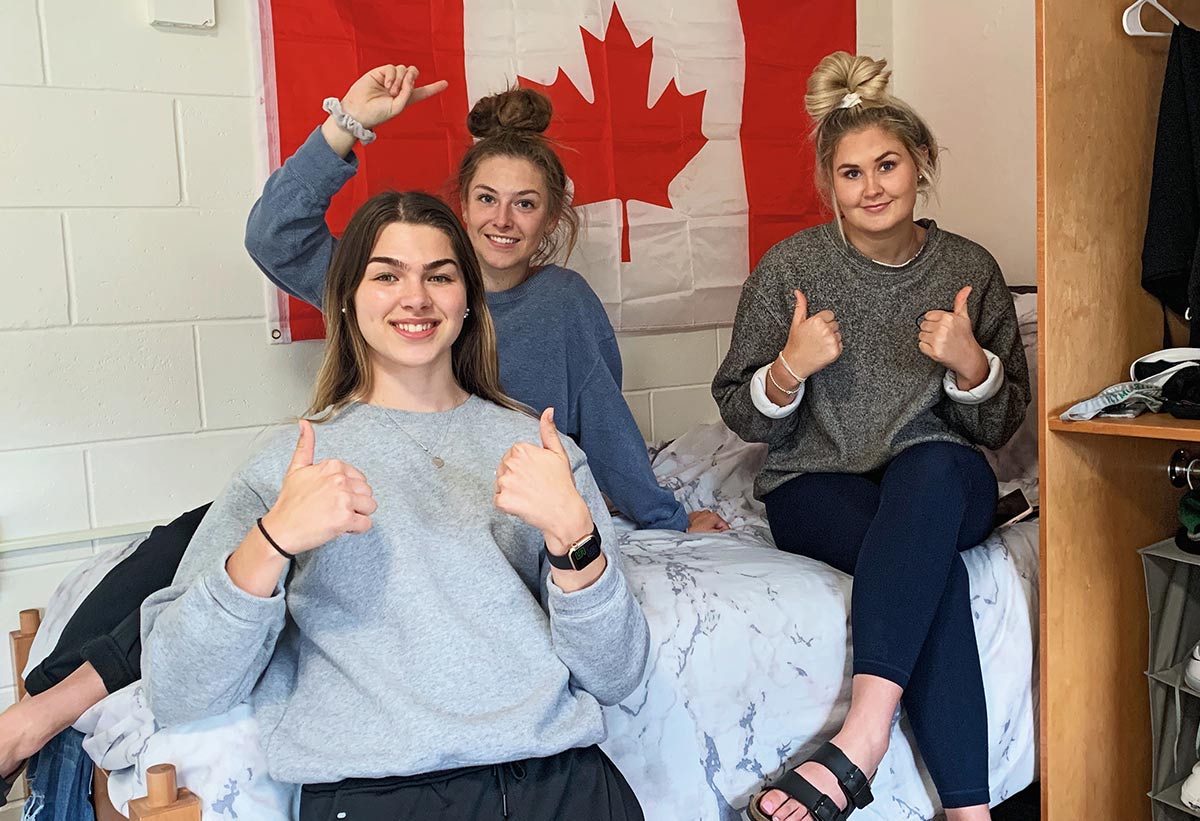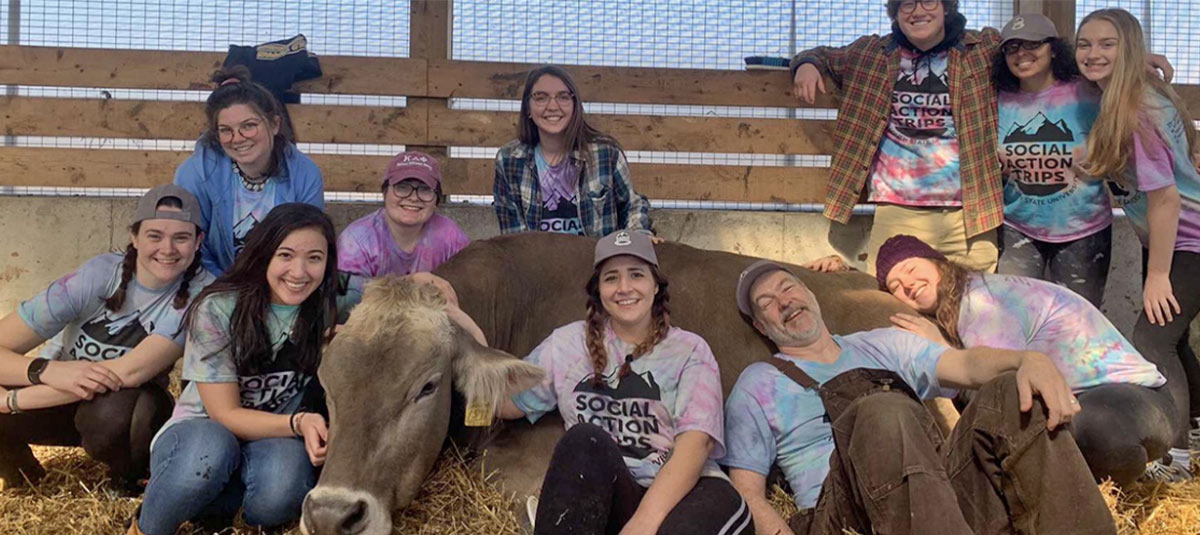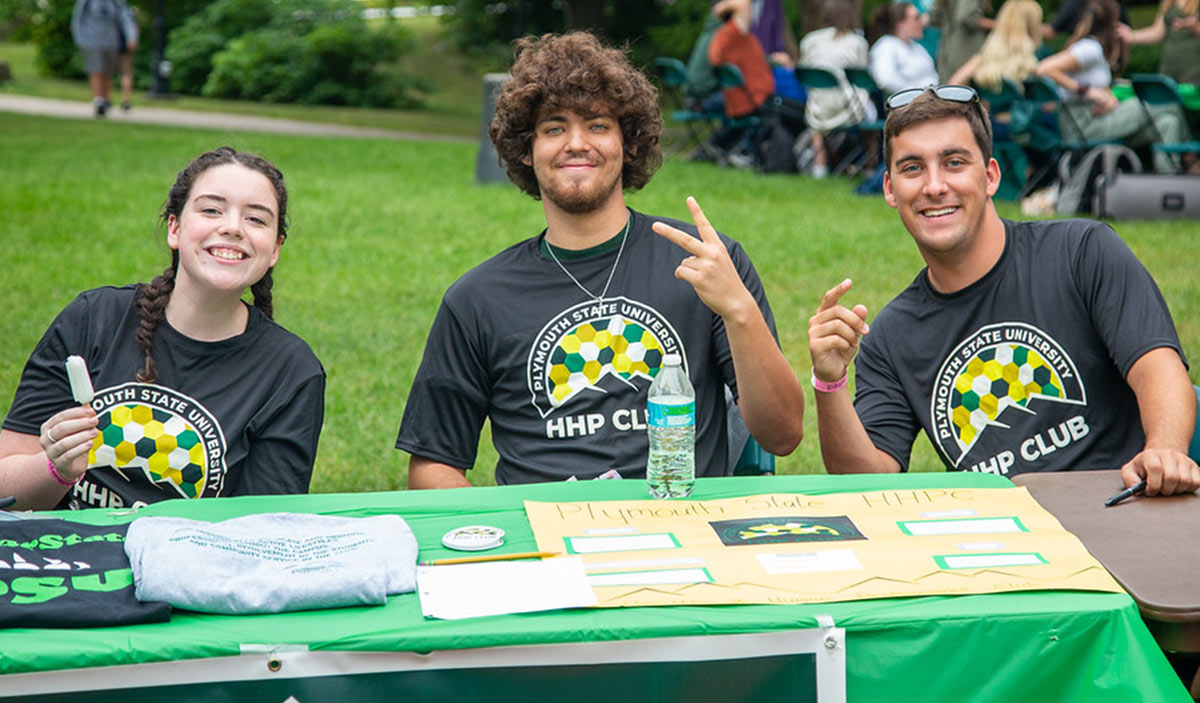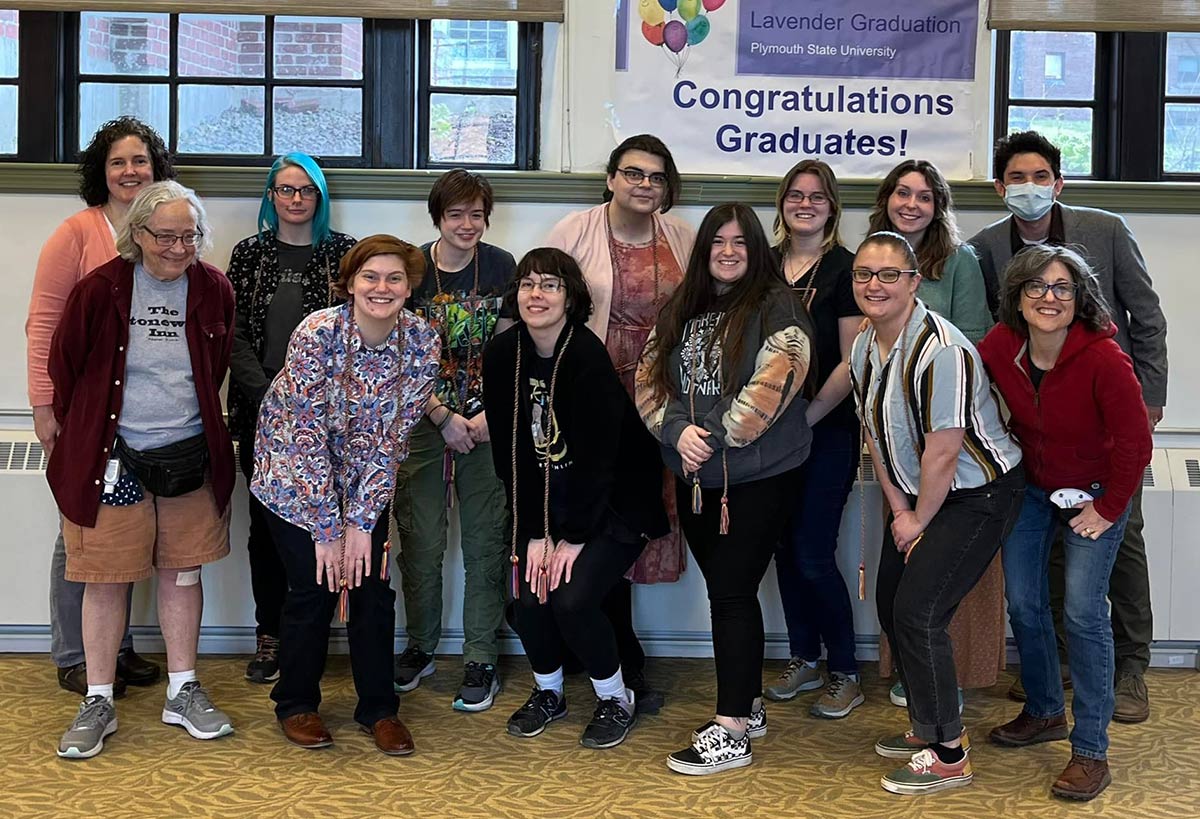 Our Welcoming Community
Our Welcoming CommunityAlberto Ramos joined Plymouth State this spring as the inaugural chief diversity officer (CDO) and leader of the new Center for Diversity, Equity, and Social Justice. The center’s Main Street location, adjacent to the Silver Center for the Arts, speaks to its mission involving both campus and community concerns.
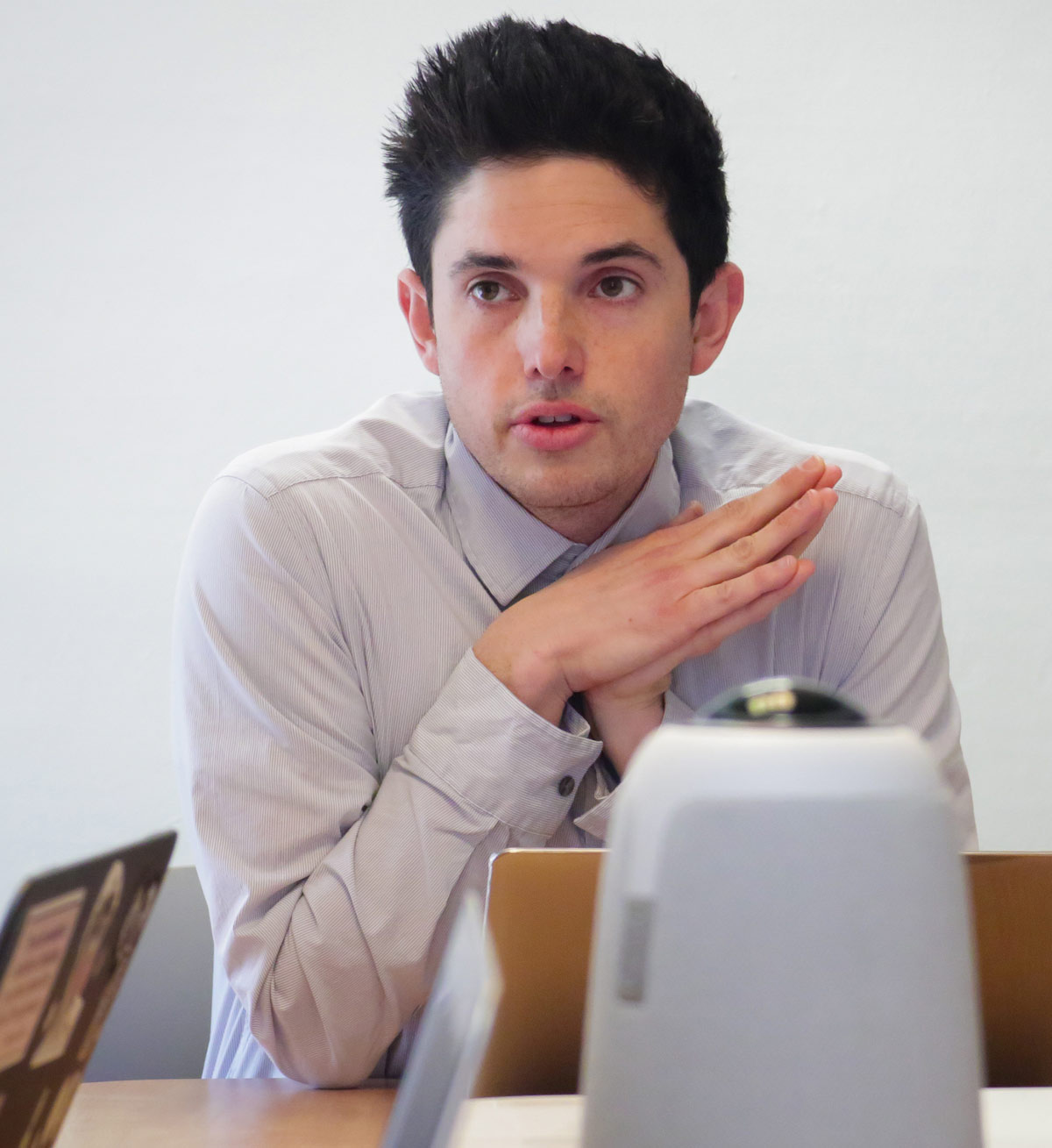
Ramos has extensive experience developing and delivering programs focused on improving inclusion and retention for students from a diverse variety of backgrounds. He has led affinity groups for Black, indigenous, and people of color students and employees; created paid diversity-related student leadership positions; and delivered an award-winning antiracism series for faculty and staff. He also created a racial justice and social transformation certificate program.
The Minnesota native is bilingual in English and Spanish. He earned a master’s in teaching English as a second language with a teaching English as a foreign language emphasis and a bachelor’s in travel and tourism and communications studies. He also has a professional certificate in leading for inclusion and racial justice.
Plymouth Magazine caught up with Ramos while he was in between setting up the new center, hosting listening sessions, and planning a comprehensive agenda of programs and activities.
Plymouth Magazine: What is the significance of the new center?
Alberto Ramos: It was created at the same time as the CDO position, and its prominent location demonstrates how important it is to PSU. The legwork that went into proposing my position and the center, and the overwhelming support they received, speaks volumes to me. So many people have told me how excited they are.
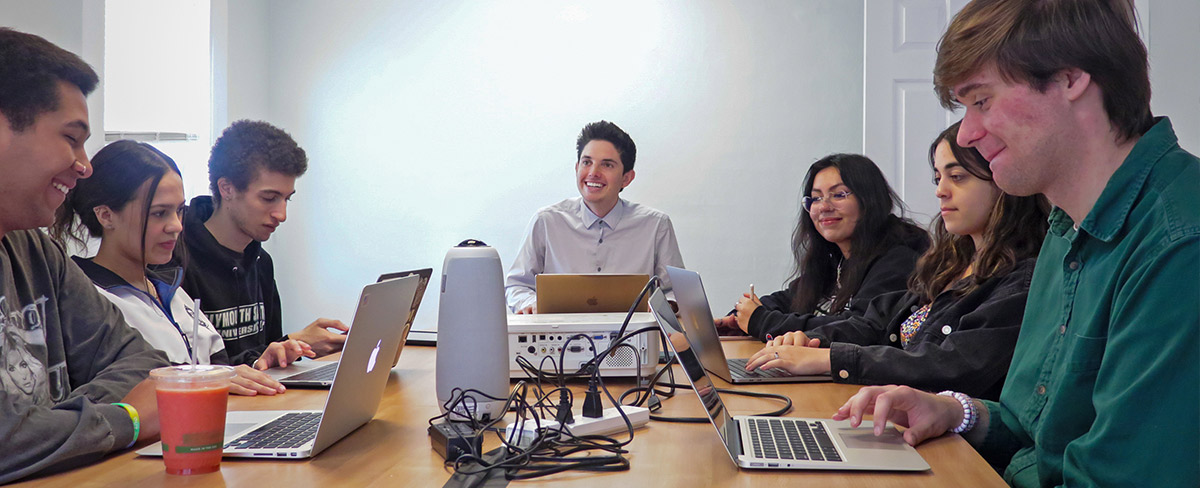
The ultimate goal is student success, and to help reduce and eliminate equity gaps in persistence, retention, and graduation, not only for students of color but for everyone.
— Alberto Ramos
Plymouth Magazine: If the goal is to become a more diverse, equitable, and socially just community, what should we be looking for in terms of future progress?
Alberto Ramos: The ultimate goal is student success, and to help reduce and eliminate equity gaps in persistence, retention, and graduation, not only for students of color but for everyone. This includes supporting a sense of belonging among all students and helping them see themselves represented in the community. We also need to better support faculty and staff of color and ensure that we’re attracting a diverse pool of candidates for open positions. As for the center, it should be a place for all to come together more informally. We kind of miss engaging in a deeper way when we’re in our ‘productivity mode.’
Plymouth Magazine: What diversity, equity, and social justice capacities should college graduates have?
Alberto Ramos: Graduates should be able to work respectfully alongside everyone regardless of their identity. Historical knowledge is also important, and graduates must have a deeper understanding of how those of color have been systematically mistreated. That traumatic history—and it’s traumatic for all of us—has a lasting impact today. It’s important to have opportunities to be interactive and develop empathy while in college.
Plymouth Magazine: How does Cluster Learning intersect with diversity, equity, and social justice?
Alberto Ramos: The center will be a collaborative space that benefits all students, allowing them to apply an interdisciplinary, antiracist lens to whatever field they go into. Those going into teaching, for example, will be able to apply that lens rather than just a color-blind approach, and it will be helpful in nursing and whatever field students are passionate about.
Plymouth Magazine: How can campus efforts influence the wider world?
Alberto Ramos: I’m looking forward to collaborating with PSU’s Co-Lab and other campus and community groups on programming. I hope that our students will become change agents who value diversity, equity, and social justice, and if we prepare them to apply that lens, then they will be changing the world wherever they live and work.
Plymouth Magazine: What attracted you to PSU?
Alberto Ramos: The CDO is a Cabinet-level position and it’s important that this position be elevated to be effective. It also has a very specific focus on supporting students. Having both factors is unique. That encouraged me to apply. The whole process was very equitable, and I saw how prepared Plymouth State is for this kind of work. When I visited, I was so impressed by how beautiful the campus and town are. I knew it would be a great place for my family, including my wife, Katie, our boys Mateo and Diego (ages two and one), and Nala, our goldendoodle.
Plymouth Magazine: What are some of your other interests beyond work?
Alberto Ramos: There are no mountains in Minnesota, so we’re excited to hike New Hampshire! I play piano and sing, enjoy running and volleyball, and love a good book, especially on practical social justice topics. I’m also a big fan of craft coffee and I look forward to sharing a cup with my fellow PSU Panthers. ■
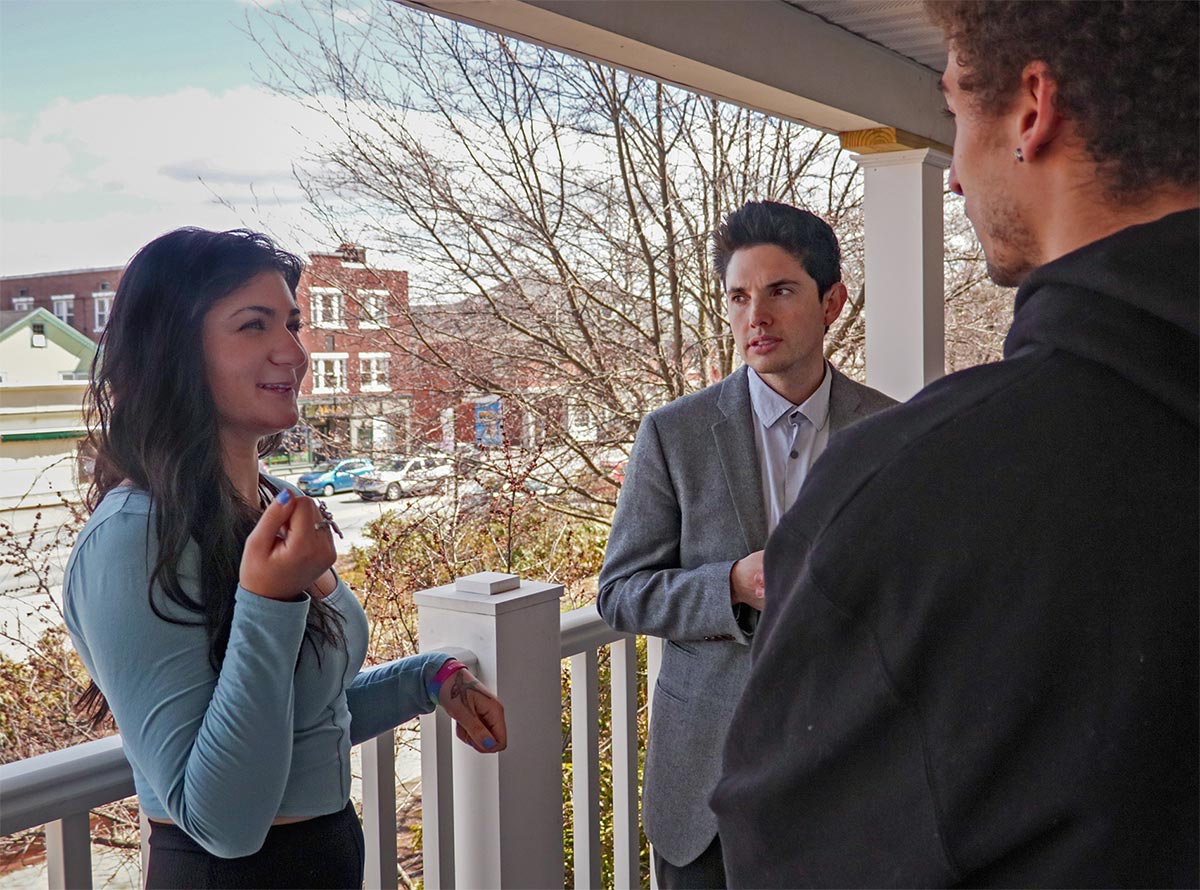
Above: Laylah Tsay ’25, Chief Diversity Officer Alberto Ramos, and Blayde Tremblay ’23 in discussion at the new Center for Diversity, Equity, and Social Justice. Olivia Gut ’22 photo.
Laylah Tsay ’25 is an adventure education and environmental science major from Morristown, NJ. In addition to serving in the new Social Justice Leadership group, she’s also a member of GNAR (Girls Not Acting Right) and the PSU Outing Club.
“I see the new center as an endless opportunity for students to feel seen and heard on campus but also as a way for them to express themselves.”
— Laylah Tsay ’25
“What attracted me to the diversity center is being Circassian. Circassian people are indigenous to the Caucus Mountains of Russia. Circassians went through a massive genocide and exile, to where they no longer have a homeland. Today, Circassians are spread out throughout the globe based on where their ancestors sought refuge. There are two prominent Circassian communities in America, in New Jersey and California, that is it. I absolutely love New England, but it does hurt to feel a loss of identity being away from the only other people I know of my culture. That is why I love my position working at the Diversity Center because it is a place where I can express pride in my heritage and help create a place and events for others to do so as well.
“I see the new center as an endless opportunity for students to feel seen and heard on campus but also as a way for them to express themselves.”
